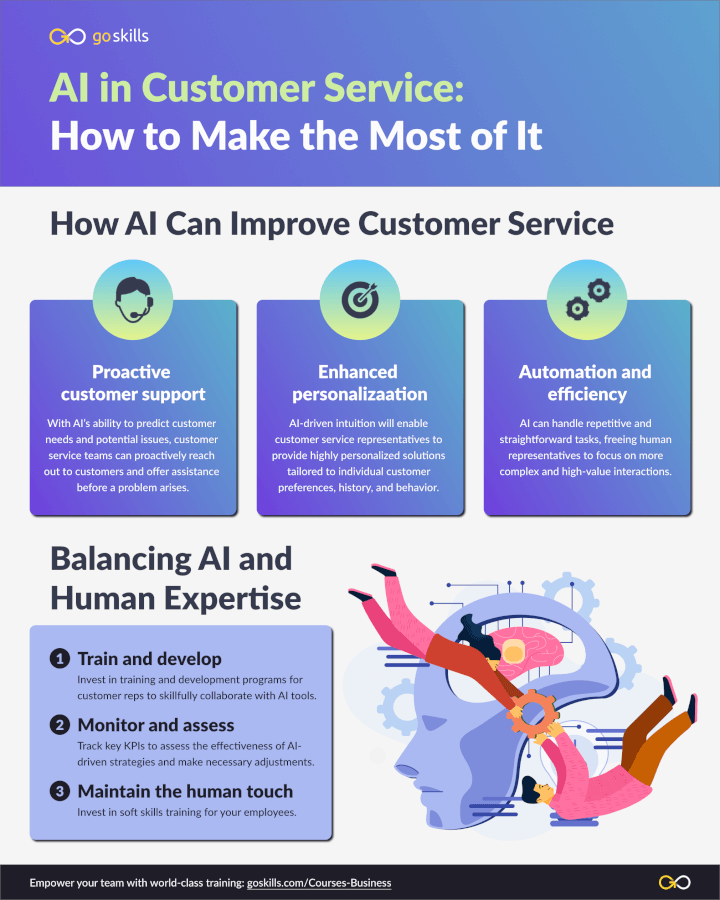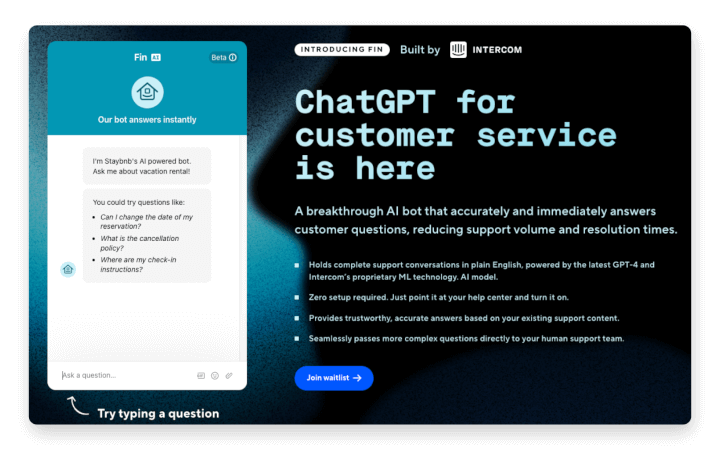Once upon a time, customer service was dominated by human intuition and experience. Veteran representatives relied on their gut feelings to navigate complex customer situations, drawing from years of interacting with various clients.
But times have changed, and the entrance of artificial intelligence into the customer service sphere has opened the door for a new era, where AI-driven intuition begins to rival—and even outperform—human intuition.
It's easy to fall in love with the idea of elegant, technologically advanced solutions for everything. After all, we've grown accustomed to the idea that if we can just find the right tool or the perfect formula, we can unlock the secrets of the universe.
This mindset has driven science to great heights in fields like physics and chemistry. But customer service is different, involving intricate interactions between countless variables and unique human minds.
The perfect formula for customer service may never exist, but that doesn't mean we can't make progress using AI.
Benefits of AI in customer service
In the world of customer service, there's no one-size-fits-all approach.
While industry practices have evolved over the years, each customer interaction is unique, and there's no set recipe for success. The power of human intuition has long been the driving force behind effective customer service.
This intuition lets skilled representatives recognize patterns, adapt to individual needs, and offer personalized solutions.
However, AI has the potential to change the game entirely. With the advent of sophisticated machine learning models like GPT-4, AI has begun to exhibit a form of intuition that rivals and often surpasses human understanding.
These models can process massive amounts of data and identify patterns that humans might miss, making them invaluable allies in the quest for better customer service.
Just like human intuition, AI-driven intuition has its own set of benefits. It’s:
- Inspectable: While we may not see the exact chain of reasoning that led to a specific prediction, we can examine the training data, model architecture, and input prompts to understand better why a certain outcome was generated.
- Debuggable: When predictions are off, we can create theories about the cause, adjust the inputs, and measure the impact on the model's performance. Over time, this process helps improve the model's accuracy.
- Transferable: Unlike human intuition, which is inherently personal and difficult to share, AI-driven intuition can be easily transferred. If you can access the dataset and code, you can recreate or utilize the model to harness its knowledge.
How to use AI in customer service
So how can AI revolutionize customer service? By focusing on prediction rather than explanation.
Instead of obsessing over finding the perfect formula or theory, customer service professionals can use AI to better predict customer needs, preferences, and potential issues.
Imagine a team of customer service researchers gathering data from thousands of past interactions, including demographics, purchase history, communication preferences, and more.
They could use this data to train an AI model capable of identifying patterns and predicting customer behavior with incredible accuracy.
With this AI-driven intuition at their disposal, customer service representatives would be better equipped to offer tailored solutions, address potential problems before they arise, and ultimately improve the customer experience.
As the AI model's predictions are tested and refined in real-world settings, they can be fine-tuned to become even more effective.

Potential drawbacks
There are, however, some potential pitfalls and challenges to be aware of when introducing AI into the customer service domain:
- Ethical considerations: Using AI in customer service raises obvious questions about data privacy and security. Data security and transparency are essential for companies' use of AI (many banks are already making rules on this front).
- Bias in AI models: AI models are only as good as the data they are trained on. If the training data contains biases or inaccuracies, these can be perpetuated in the AI's results. It’s crucial to carefully select and curate data to minimize potential biases and inaccuracies.
- Human-AI collaboration: Integrating AI into customer service shouldn’t be seen as a replacement for human representatives but rather as a powerful tool to enhance their abilities. Organizations must focus on fostering a collaborative environment in which human and artificial intuition can work together, not replace one another.
The future of AI in customer service
As AI continues to evolve, we can expect a number of exciting developments that will redefine the customer service landscape:
- Proactive Customer Support: With AI's ability to predict customer needs and potential issues, customer service teams can proactively reach out to customers and offer assistance before a problem arises. Combining soft skills with proactive support will not only improve customer satisfaction but also reduce the number of reactive support requests, leading to a more efficient and effective service.
- Enhanced Personalization: AI-driven intuition will enable customer service representatives to provide highly personalized solutions tailored to individual customer preferences, history, and behavior. This superior level of personalization will lead to more successful problem resolution and increased customer loyalty.
- Automation and Efficiency: AI can handle repetitive and straightforward tasks, freeing up human representatives to focus on more complex and high-value interactions. This will not only increase efficiency but also allow customer service teams to provide a more comprehensive and high-quality experience.
One excellent example is Intercom’s Fin. It leverages OpenAI’s now-famous GPT language model to create truly conversational and personalized automated support, far beyond even Intercom’s existing models.

Balancing AI and human expertise
While AI has the potential to transform customer service, it’s important to remember it’s not a panacea.
There will always be situations where human intuition and empathy are needed to navigate complex or emotionally charged interactions. The key to success lies in striking the right balance between AI-driven intuition and human expertise:
- Training and Development: Invest in training and development programs to ensure that customer service representatives have the skills and knowledge needed to work effectively alongside AI tools. This includes understanding how to interpret AI-driven predictions and recommendations, as well as how to collaborate with AI in real-time.
- Monitoring and Evaluation: To ensure that AI-driven customer service is delivering the desired results, implement ongoing monitoring and evaluation processes. This includes tracking key performance indicators (KPIs), like customer satisfaction scores, resolution times, and the number of escalated issues, to assess the effectiveness of AI-driven strategies and make necessary adjustments.
- Maintaining the Human Touch: Despite AI's many advantages, it’s essential not to lose sight of the importance of human empathy and understanding in customer service. Soft skills training goes a long way in this regard. Strive to maintain a balance between efficiency and personalization, ensuring that customers feel valued and understood throughout their interactions.
Conclusion
To put it simply, AI-driven intuition offers a wealth of potential for enhancing and revolutionizing customer service. With the power of AI, companies can improve prediction, personalization, and efficiency, while also addressing potential drawbacks and maintaining the human touch that is so vital to successful customer interactions.
As AI continues to advance, it will be exciting to see how customer service evolves and adapts to meet the ever-changing needs of customers in this brave new world. Learn more about how artificial intelligence in hiring is changing the recruitment industry to make its processes more efficient and effective.
Despite all this, the human touch can give your business a unique competitive edge since your organization is as unique as the people who make it up. Your employees will still need training in customer service as well as other soft skills since in spite of everything, humans still show an overwhelming preference for interacting with other humans.
A better way to train
It‘s easier than ever to track and manage your team‘s training with the GoSkills LMS.
Start for free



